Join us as we explore the compelling story of Jennifer Schwytzer, LMSW, a dedicated professional at the helm of KINDfulness Coaching.Jennifer’ ...
How Blue Sky Coaching Cultivates Success in Work and Life
Written by: Esther Strauss
Esther is a business strategist with over 20 years of experience as an entrepreneur, executive, educator, and management advisor.
Published on March 18, 2024
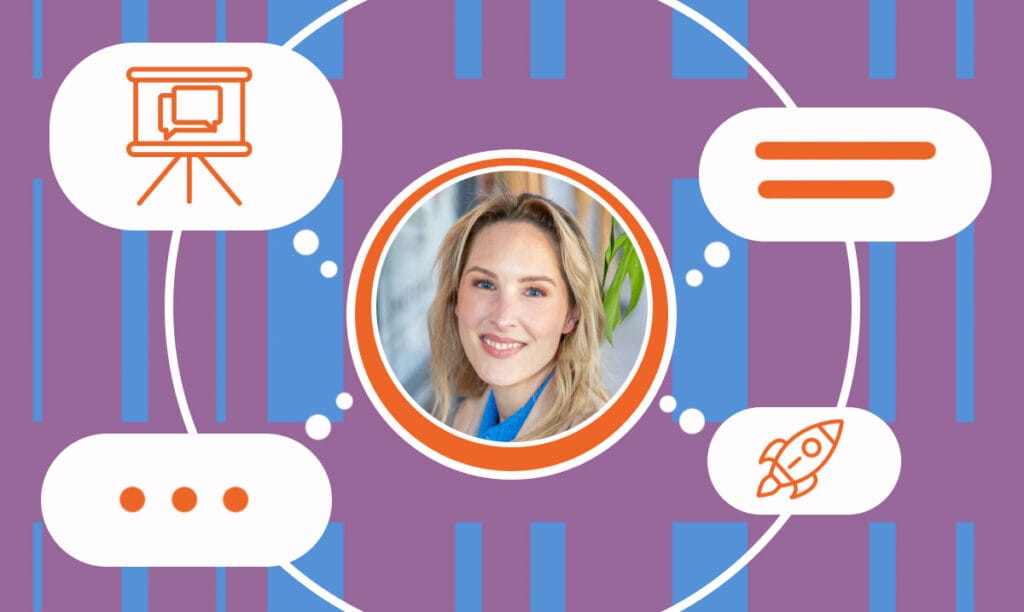
In the ever-evolving world of coaching, it’s essential to connect with those who are leading the way with innovative approaches and transformative techniques. That’s exactly what we’re doing in our interview with the founder of Blue Sky Coaching, a vibrant hub of personal and professional development.
Carly Kay‘s unique blend of expertise in corporate, life, graduate, internship coaching, and Enneagram consulting has distinguished her and her business in a crowded field. Dive into our conversation as we explore the driving forces behind her success, uncover valuable insights for aspiring coaches, and peek into the future of this dynamic industry.
The Origin Story
SBS – What’s the story behind your business?
Carly – Over the past 18+ years, I’ve worked in small to medium enterprises and then in corporate. Throughout my career, the one common thread that has seen me through whichever role I’ve been in is people — working with people and collaborating with people. In project management, sales, or human resources, people have always been my interest and drive behind delivering good work because I believe people are the heart of the business.
As you’re growing and developing yourself, you start trying different things. I wanted to progress in my studies, so coaching was a natural route. I was working in corporate then, and I knew that if I were to be taken seriously in the coaching world, it would be through advancement. This was in 2015, but I already saw a need for coaching in my corporate world. Most businesses go through a lot of change management, and people need direction, skill development, talent management, etc., so my passion for people, process, and performance could come together. I decided to return to studying and invested in my coaching studies.
Over the study period, I was still working, but I managed to get a role in human resources. After my studies were completed, I wanted to coach full-time, but there wasn’t a need for me to do so, so I was pushed to make a decision. I had invested much time and money in developing my personal and professional skills, so it was just the shove I needed to take the leap. I’m married, so it was a decision that we made together. I wanted to coach full-time and start my business. I wanted to have the flexibility. I didn’t want to waste more time doing something I could do well but wasn’t passionate about. I had a name, an idea, and some support, and it was just a leap of faith.
SBS – Did COVID help your business or not?
Carly – I left corporate in February of 2020, and on March 2 of the same year, I was already doing online coaching sessions from my home (because that’s where I work from). It is because of COVID that online platforms and coaching availability opened up. Before that, it was usually thought that unless there’s this in-person connection, the coaching isn’t going to be that beneficial. However, we were forced to change.
After I started a brand new business, the company I used to work for contacted me. They said that people in their graduate development program were struggling. They were also working from home (of course, everybody had to adapt).
It was great for my coaching practice, and it was easy. I had the relationships and could continue the support I ultimately wanted to give when working in corporate — but now I was doing that role and working for myself.
Customized Coaching Approach
SBS – How do you tailor your coaching to the needs of each client?
Carly – Most clients find me because my specific niche is leadership development. I’m passionate about it because I’ve always worked in a working environment, and I can count on one hand the number of really good leaders I’ve had in my career. Most of them have been okay, but I thought about the ones that stand out and wondered what makes them great at what they do. Over the years, I’ve done a lot of research into leadership development.
I use an integral methodology in my coaching, and I’m also a neuro-transformational coach. I combine the art and science of coaching, and people find me because they’re stuck, usually in their careers. When it comes to coaching, you work with the person and not the problem. The problem will be the umbrella feature of why they find me. It can be a life coaching need when they feel stuck within themselves. Also, mental stress and strain, burnout, conflict, and similar things are usually linked to work or role development and building a career. Usually, the coaching that I do is tailored more towards working with young working professionals.
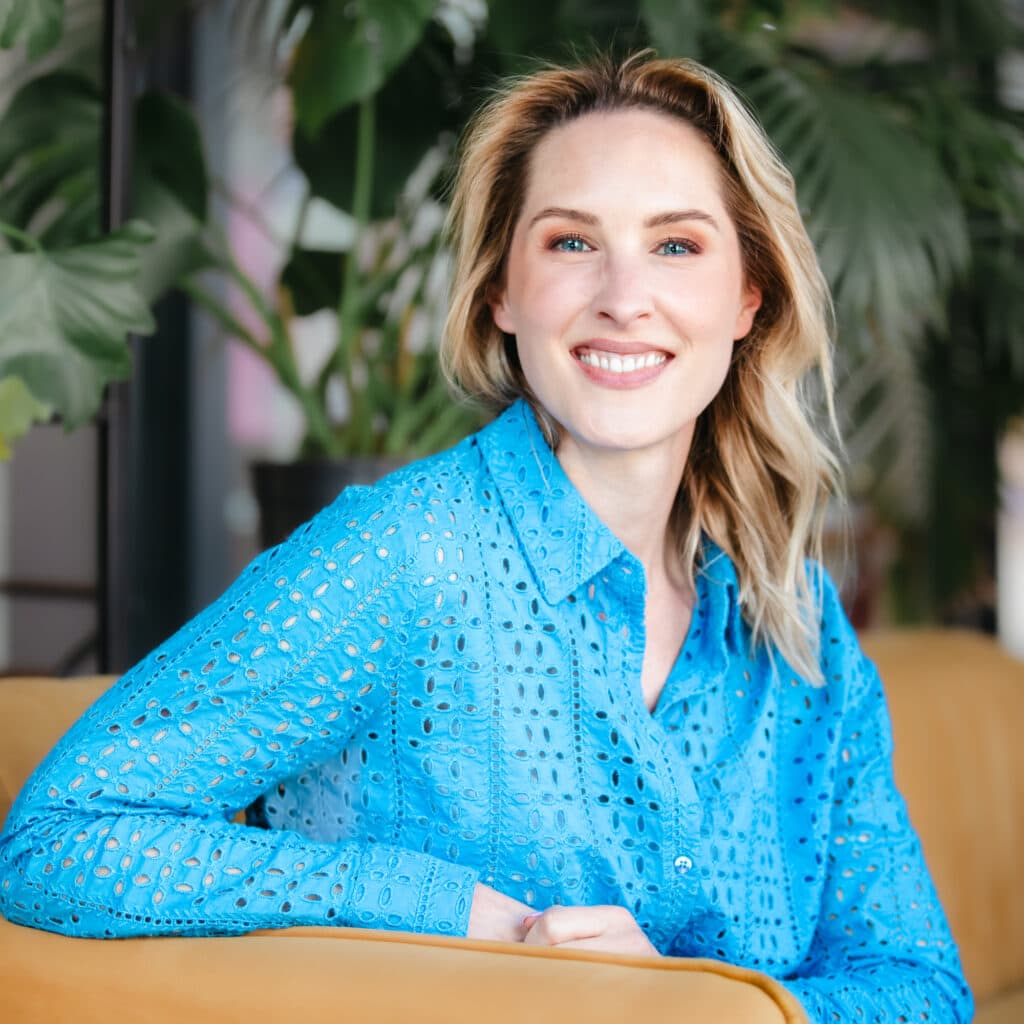
Assessing Success
SBS – How do you measure the success of your coaching sessions?
Carly – My coaching is quite bespoke. Different people need different things, so each program is tailored with that in mind through collaboration. At the end of the day, when we work with clients, we want the relationship. It’s a partnership, so it’s pretty collaborative.
Coaching is not about diagnosing an issue or building a relationship that goes on forever and ever. It’s future progress. It’s about wanting to leave the client with the ability to self-correct and self-generate.
You have to be a very good listener, and you will be able to pick up threads about where people get in their own way regarding progress. Then, collaboratively, in quite a creative and thought-provoking process, you work with the client to define what “good” looks like for them. You want to create conversations of possibility and ask your client, “If we could overcome this challenge, how would you know? What would that look like?”
You get to work with the client in little steps in order to reach the bigger goal so that when they eventually say, “I’ve reached that point,” they can identify in themselves a changed behavior, a changed way of thinking, a changed way of feeling. Usually, we have patterns of how we think, feel, behave, and show up in the world — and we’re not aware of that a lot of the time. Coaching makes the invisible visible so that people become aware of what they’re doing or thinking or how they’re feeling.
We will create a program together, whether it’s certain exercises, self-observations, or any task the client needs to do in between the sessions. It’s in the practice that they start learning, then they come back into the coaching, and then we review what’s going on. It’s quite an active process of learning.
Within a coaching session or coaching period, be it five or ten sessions, you will have made progress with the client such that they’ve reached the goal or that they know what to do to keep that a sustained way of being so that they don’t revert to the reasons why they came to you in the first place. They will start to wake up to the things that aren’t serving them anymore.
Real-life Example of Coaching Impact
SBS – Do you have an example of someone you impacted with your coaching?
Carly – People are creatures of comfort, so change is really difficult. Many people look for safety and trust, and someone to speak to. Of course, that’s a part of our coaching agreement. I’m a member of the International Coaching Federation, whose members can work to very high standards of personal conduct and ethics, and confidentiality is at the top of the ethics list. Clients know that they can come and have that space and time and know that what they’re going to talk about is held in trust.
I’ve had the opportunity to work with many incredible people, and each has come with a challenge. A client that impacted me recently from last year was a lady who’s very passionate about life, and she struggled to contain her energy. It was just through working together over a couple of months that she could let go of a lot of anger and frustration that ultimately added to the energy and how she came across. For her, it was, “I’m passionate, I fend for my people, I work hard for my team.” On the receiving end, people found her quite aggressive, forceful, and dominant in her thinking and ideas.
We worked together really well. She showed up and committed to what we needed to try over time. She left in a space where she allowed people to help her, which was remarkable because she would never ask for help. She wanted to do things on her own and show the world that she didn’t need help or support. That can be a great characteristic, and people see that as admirable. But also, you get to points in your life where you need to be able to ask for help, and you also need to be able to let go of things because they take either a physical or an emotional toll.
It was the process of letting go that was beautiful to watch. We had quite a special partnership, so she will be one of those clients you’ll never forget. They leave a lasting impact. When she had finished her coaching, she was a much lighter human being emotionally. The weight of the world was lifted from her shoulders.
Coaching is not only about what you need to change. It’s about what you must let go of to free yourself from these self-imposed chains. Often, the hardest thing is putting yourself first, but the self-care and the boundaries aren’t easy to do and stick to. But it’s normal.
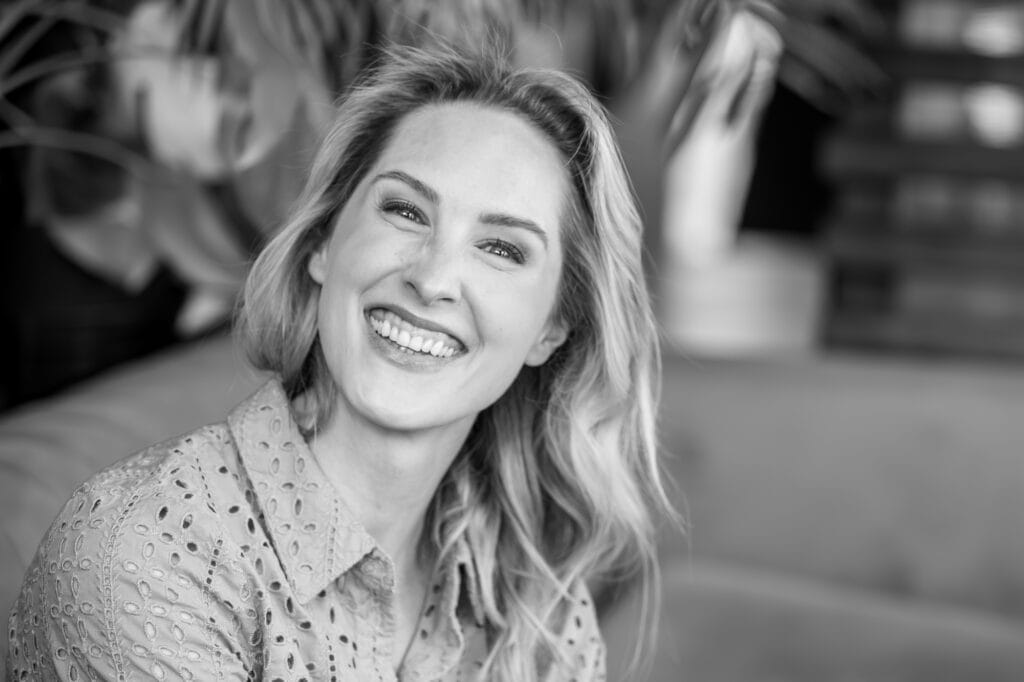
The Enneagram Influence
SBS – What role does the Enneagram play in your coaching approach?
Carly – I love the Enneagram. It’s a personality framework, and we use it a lot in the corporate world to work with individuals and teams to discover their leading personality types. Like I mentioned, it’s about building awareness so that you can start to make different decisions when it comes to your programmed way of thinking, feeling, and behaving.
Once you know your typical patterns, the framework allows you to start connecting to different spaces. This gives you the power of choice regarding how you are and how you show up in the world.
For me, Enneagram is particularly special because it was the catalyst for my personal and professional development back in 2015. I was working in a corporate and part of a key talent program, where we also got to do this Enneagram profile, and I learned a lot about myself. It was the catalyst for change. I’d fallen on many excuses in terms of my own behavior, and it just got me thinking that I would love to be able to help other people by doing this. It got me researching and looking into the coaching, the framework, and how to help people.
People, especially in corporate, are a bit wary of the assessment because they don’t want to be boxed or stereotyped in terms of their personality and behavior. But I always say to my clients when
we start that the framework isn’t about that. It’s really about getting to know yourself so that you can free yourself to make different decisions that are going to serve you better or differently. It’s about exploration and experimentation as you navigate your way around the framework.
The gift is in the feedback. We all have to start somewhere. You get better and better as you go, and you have to practice often. I had a wonderful mentor who showed me how to provide feedback with any of these frameworks. I’d seen a number of people work with the framework, and I just connected with how my coaching supervisor provided the feedback. I would sit in on sessions to learn. I wanted to get better, so I would ask them to join the call when they gave feedback. Obviously, since we’re both coaches, it’s all confidential. I turned my camera off so I wasn’t a distraction, but I could still observe, which was powerful because I could then use what I liked and build on that.
Staying Current
SBS – How do you stay updated with the trends in neuroscience, coaching, psychology principles, etc.?
Carly – It’s always a juggle. I have to juggle between business investment and growing the business and personal investment. The good thing about belonging to a body like the International Coaching Federation is that to maintain your membership, there’s a three-year renewal cycle, and you’ve got to submit the CCEU (continuous coaching education units). You have to have points within your cycle to show that you’ve done your time regarding personal development, code of conduct, and ethics.
If you join a body, there are often affiliate relationships and partnerships. Through that, you can attend any kind of short or long course, and you just end up doing a lot of research to stay on top of key trends and themes.
But it’s funny because when it comes to people, especially in the workplace, there are usually the same things that they’re struggling with, especially now that we’re all connected all the time. When do you learn to turn off? How do you manage your stress? How do you manage your boundaries? How do you look after yourself? Those are the key themes that pop up over and over again.
I just love learning; you don’t need to ask me to. I’m a lifelong learner and love finding new and interesting things. I find things through the International Coaching Federation or through different people that I follow, and it’s driven by the need to provide the best for my clients.
You can be quite tools-driven with coaching, so you must be careful. This is just my personal thing.
Coaching can be quite transactional, where you rely a lot on models and tools to work with your clients (and I’m not saying that’s a bad thing). You also need to use the gift that coaches develop where they look beyond all of that and help with more transformational coaching, which is just getting people to shift. That comes from being present with the client, listening, and picking up on body language and all kinds of things.
The more courses you do, the more you learn, and then you can tailor your sessions to the client’s needs. I don’t have scripted coaching. It’s completely organic, and the only thing I live by is “show up and be present and then respond to what shows up,” which is the client and what they bring. You get good at that by doing all the other courses that build on your baseline skills.
Advice for Aspiring Coaches
SBS – What advice would you give someone wanting to start a coaching business?
Carly – There are a lot of different coaching courses and certifications on offer, so you need to look ahead and know where you want to work and who you want to work with.
I have always wanted to work in the business and corporate spaces. Corporates know about coaching credentials and the proper certifications, so I went to the University of Cape Town’s graduate business school. They run a center for coaching. We also have our graduate business school here in Johannesburg, which also offers a very good program. I did that because I knew that credentials would matter. So, where you want to work will dictate where you study and how long you study for. My program was quite intense over two years. Some people will do much shorter courses.
It also boils down to what you’re passionate about. I’m passionate about leadership. I knew I wanted to go into that space, but there’s life coaching, wellness coaching, etc. However, if you offer too much, then you’re difficult to find. As you narrow your offering, people will find you because they’re pretty specific in their needs — and people know what they want. They might not know what they need (the coach will work that out), but they want a new job, to be thinner, or something else. Underneath all of that is a bigger story that you can then attack.
You can always do coaching on the side. When I was studying, I was still working. You don’t have to study full-time; you can do it over a period of time and work so that you’ve got your income.
Because there’s so much personal development that goes into coaching, you must almost go through your own coaching journey, grow, and develop like you’ve never done before. You also need to practice; coaching is all about getting in front of people and practicing. While you have a job and you’re learning, you can offer coaching for free or, for barter, a small amount because you want to build up the hours and get in the seat and practice. Eventually, there’s a tipping point where you realize you’ve done the time, you’ve got the skills, and this is what you want to do. Then, you need to balance out the books and just go for it.
Subscribe to Our Newsletter
and gain insider access to cutting-edge business insights and trends.
Featured Resources
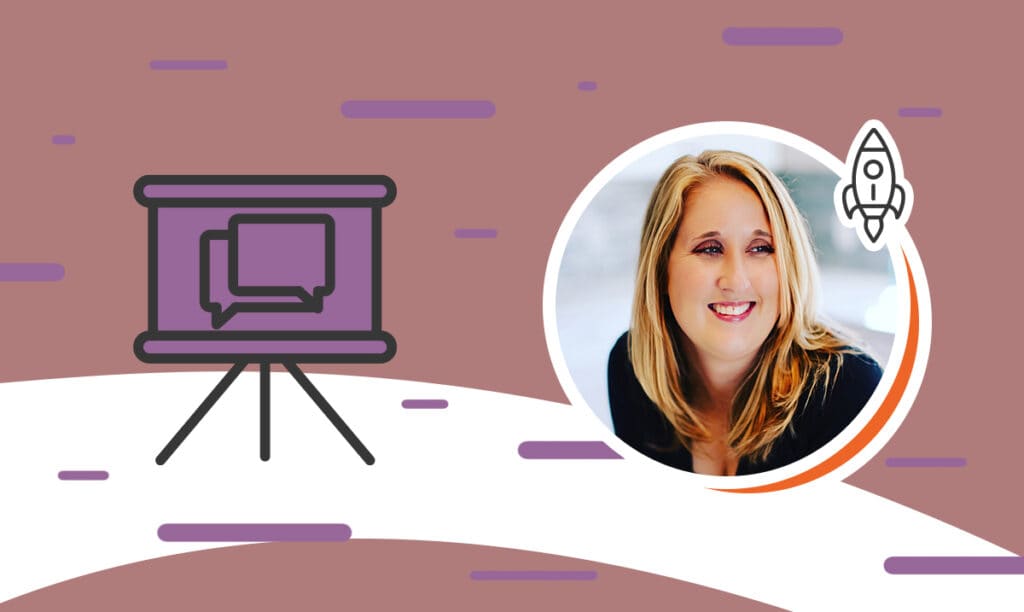
Charting a Path of Self-Kindness with Coach Jennifer Schwytzer
Published on December 27, 2023
Read Now
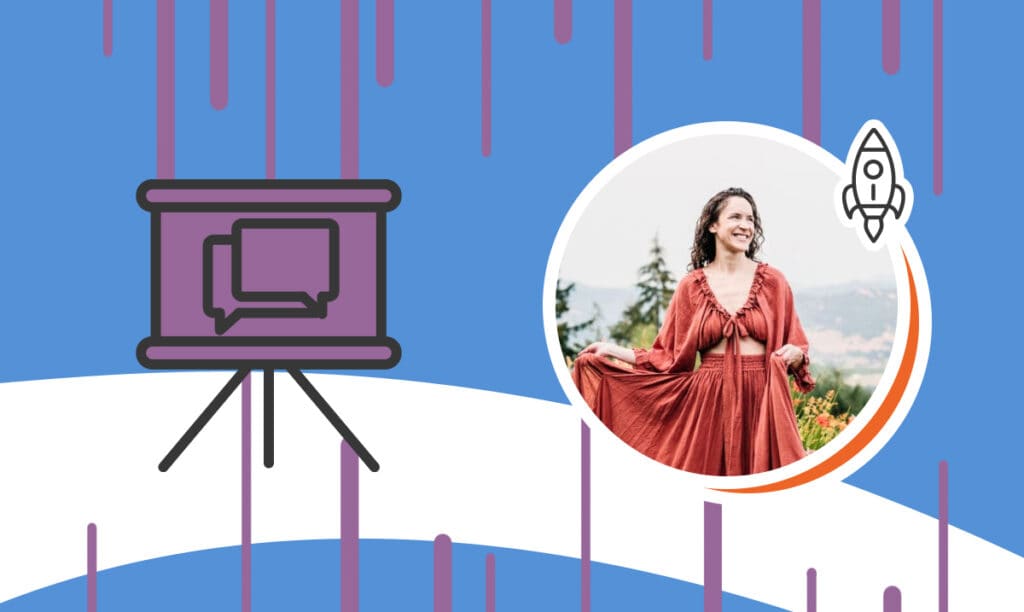
The Art of Thriving: A Conversation with Life Coach Andrea
Published on November 7, 2023
In the heart of every educator beats the passion for nurturing growth, but what happens when the nurturers themselves yearn for care and guidance?Me ...
Read Now
Comments